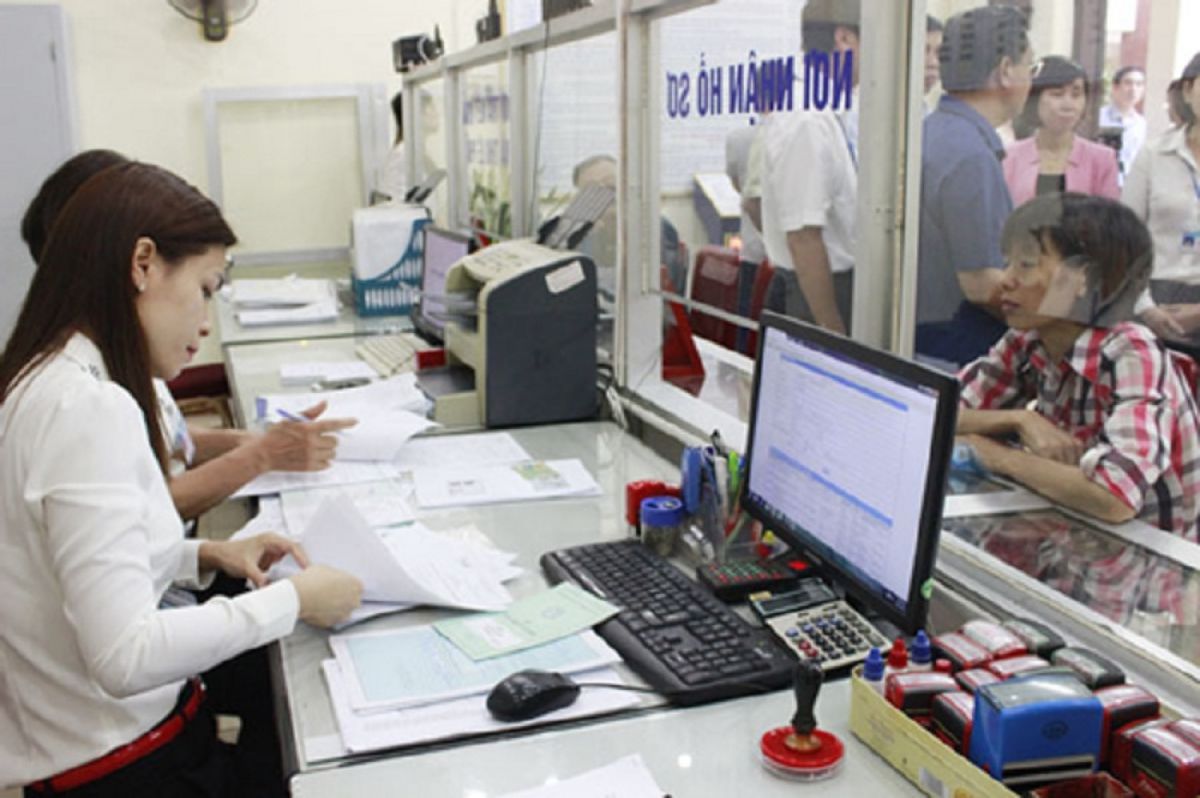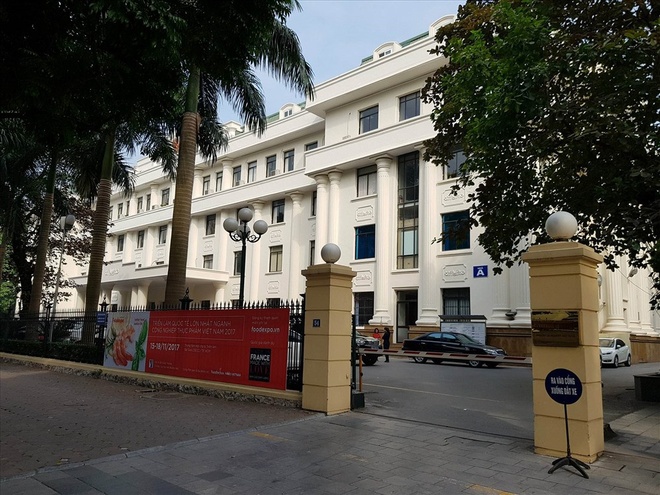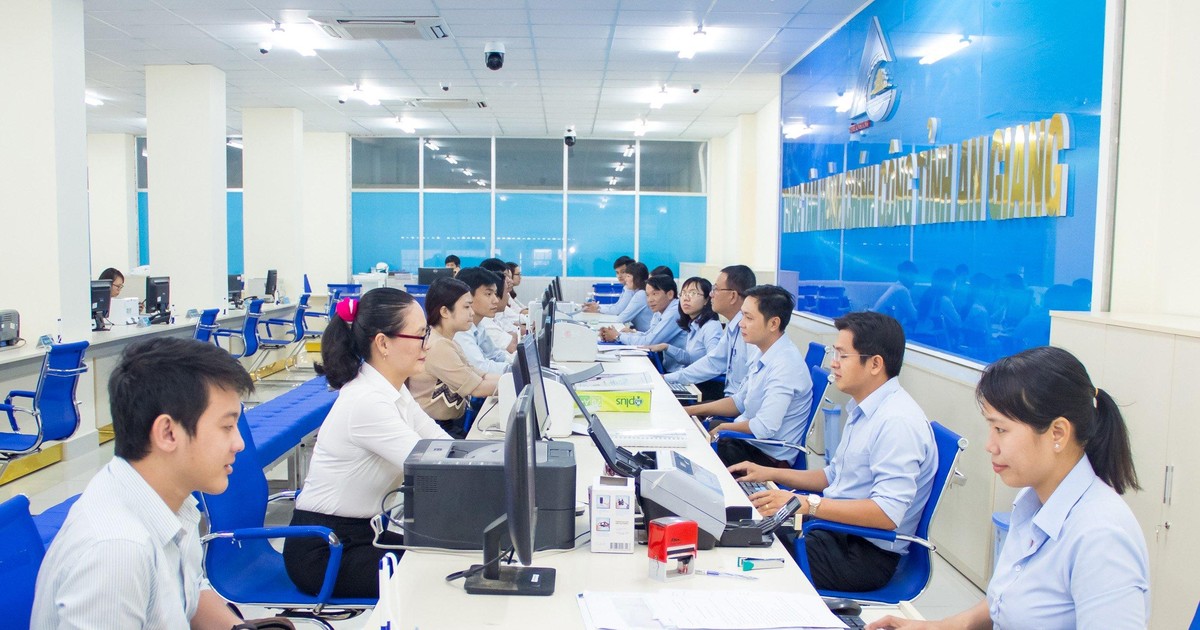Regulations on handling of assets and finance upon dissolution of public non-business units in Vietnam
What are the regulations on handling of assets and finance upon dissolution of public non-business units in Vietnam? - My Duyen (Tien Giang, Vietnam)

Regulations on handling of assets and finance upon dissolution of public non-business units in Vietnam (Internet image)
Regarding this issue, LawNet would like to answer as follows:
1. What do public non-business units include?
According to Clause 2, Article 9 of the Law on Public Employees 2010, public non-business units include:
- Public non-business units assigned with absolute autonomy in task performance, finance, apparatus organization and personnel (below referred to as autonomous public non-business units);
- Public non-business units not yet assigned with absolute autonomy in task performance, finance, apparatus organization and personnel (below referred to as non-autonomous public non-business units).
2. Regulations on handling of assets and finance upon dissolution of public non-business units in Vietnam
Regulations on handling of assets and finance upon dissolution of public non-business units in Vietnam according to Article 19 of Circular 56/2022/TT-BTC are as follows:
* Asset handling of public non-business units upon dissolution in Vietnam:
- Public non-business units shall inventory and classify assets under their management and use rights; be responsible for handling assets discovered in excess/shortage through inventory in accordance with law.
For assets not belonging to the unit (property received for custody, borrowed property, leased property of other organizations or individuals), the unit shall handle it in accordance with relevant laws;
- The public non-business unit is responsible for formulating the handling plan, reporting it to the superior management agency for summarization, and proposing the handling plan; send the agency performing the task of public property management at the same level for opinions on the property handling plan.
Based on the opinion of the public property management agency, the unit completes the property handling plan to make a dissolution scheme (including the property handling plan) and submits it to competent authorities for approval according to the provisions of Decree 120/2020/ND-CP.
The property handling plan must be consistent with the form of property disposal as prescribed in the Law on Management and Use of Public Property, Decree 151/2017/ND-CP;
- Pursuant to the public administrative unit dissolution scheme approved by the competent authority, the public administrative unit shall report to the competent authority according to the provisions of law on the management and use of public property, consider and decide on the disposal of property, and on that basis, organize the disposal of the property.
The order, procedures, and competence to decide and organize the handling of property shall comply with the law on management and use of public property;
- In case the public non-business unit has terminated its operation but has not yet completed the property handling; Ministries, central agencies, provincial and district People's Committees shall decide to assign superior management agencies to perform the remaining tasks;
- The proceeds from the disposal of public property of the public administrative unit upon dissolution shall be managed and used according to the provisions of Article 55 of Decree 151/2017/ND-CP;
In case the public administrative unit has made financial finalization, the proceeds from the property handling (after deducting relevant expenses) shall be remitted into the state budget;
In case the public non-business unit has terminated its operation but has not yet completed the handling of assets, which ministries, central agencies, provincial-level People's Committees or district-level People's Committees decide to assign them to superior management agencies for implementation:
The management and use of the proceeds from the disposal of property shall comply with the provisions of law on the management and use of public property, corresponding to the type of superior management agency;
- When a public non-business unit is dissolved and is using public property for business, leasing, joint venture, or association purposes, then:
The signed contract must be terminated, and a plan for dealing with assets taken away for business, lease, joint venture, or association must be made upon termination of the contract to aggregate them into the property handling plan in the Reorganization Scheme before submitting it to the competent authorities for approval as prescribed at Point b, Clause 1, Article 19 of Circular 56/2022/TT-BTC.
* Financial handling of public non-business units upon dissolution in Vietnam:
- Public administrative units are responsible for making financial statements and final settlement reports in accordance with the accounting regime for public administrative units;
Formulate a plan on dissolution of the public service unit approved by the superior governing body, in which it is necessary to report in detail the cash balance of the non-business development fund; the bonus and welfare fund, the income supplement fund, the special fund, and other funds; and propose a plan to handle the entity's finances and debts on the principle of ensuring the payment of all debts and other property obligations and not during the dispute settlement process at Court or Arbitration.
The head of the public administrative unit is responsible for the debts of the unit in order of priority for payment of debts: Debts to employees; tax debt; other debts;
- For the cash balance of the non-business development fund, bonus and welfare fund, income supplement fund/income stabilization reserve fund, other funds according to regulations, and the balance of salary reform sources , the unit does the following:
+ The cash balance of the Bonus and Welfare Fund is used to make up for the overspending of the employee's salary (if any) and the employee's expenses according to the regime prescribed for public non-business units; the rest is divided among the employees who are working according to the number of months working at the converted public non-business unit (In case the month is not full and there are odd days, the number of odd days from 15 days or more will be counted as a full month, less than 15 days will not be counted).
The payment of cash balances of funds for employees shall be completed before the time of dissolution of the public administrative unit;
+ The cash balance of the Income Supplement Fund/The Income Stabilization Reserve Fund is distributed to the employees currently working in accordance with the Regulation on Internal Expenditure of the public non-business unit, not exceeding 6 months' salary. , the remainder (if any) is used to pay the entity's debts (if any);
+ The cash balance of the non-business development fund, other funds as prescribed by law, and the balance of salary reform sources are used to pay debts of the unit (if any);
+ If the unit no longer has debts to pay, the remaining cash balance of the Funds paid into the state budget after implementing the contents specified in Point b, Clause 1, Article 19 of Circular 56/2022/TT-BTC.
- Handling of accounts payable:
+ The public non-business unit is responsible for comparing and certifying all debts payable to organizations and individuals (including due and undischarged debts) when formulating the dissolution scheme.
If, by the time of the formulation of the plan on the dissolution of public administrative units, there are still a number of payable debts with complete dossiers that have not yet been compared and certified:
The head of the public administrative unit must clearly explain the contents of the debts, as well as the collective and individual responsibilities involved; and must mobilize legal capital sources to pay off due debts.
+ If a public service unit has difficulty paying overdue debts of credit institutions (including the Vietnam Development Bank), the debts are handled in accordance with the State's current regulations and relevant current laws on credit institution debt settlement.
+ The settlement of payable debts shall be carried out on the principle of using the collateral of the debt to make payment with collateral; do not use the state budget to handle the production and business debts of the unit.
- Key word:
- Public non-business units in Vietnam
- Cases of land rent exemption and reduction under the latest regulations in Vietnam
- Economic infrastructure and social infrastructure system in Thu Duc City, Ho Chi Minh City
- Regulations on ordination with foreign elements in religious organizations in Vietnam
- Increase land compensation prices in Vietnam from January 1, 2026
- Determination of land compensation levels for damage during land requisition process in Vietnam
- Who is permitted to purchase social housing according to latest regulations in Vietnam?
-

- Sample service contracts in administrative agencies ...
- 14:56, 06/05/2023
-

- Criteria for classifying public non-business units ...
- 10:13, 18/02/2023
-

- Vietnam: Conditions for dismissing a member of ...
- 16:19, 15/02/2023
-

- Basis for determining employment position for ...
- 12:36, 08/02/2023
-

- Vietnam: Standards and conditions for signing ...
- 14:15, 03/01/2023
-

- Notable new policies of Vietnam effective as of ...
- 16:26, 11/04/2025
-
.Medium.png)
- Notable documents of Vietnam in the previous week ...
- 16:21, 11/04/2025
-
.Medium.png)
- Notable documents of Vietnam in the previous week ...
- 16:11, 02/04/2025
-
.Medium.png)
- Notable new policies of Vietnam to be effective ...
- 16:04, 02/04/2025
-
.Medium.png)
- Notable new policies of Vietnam effective from ...
- 14:51, 21/03/2025

 Article table of contents
Article table of contents
